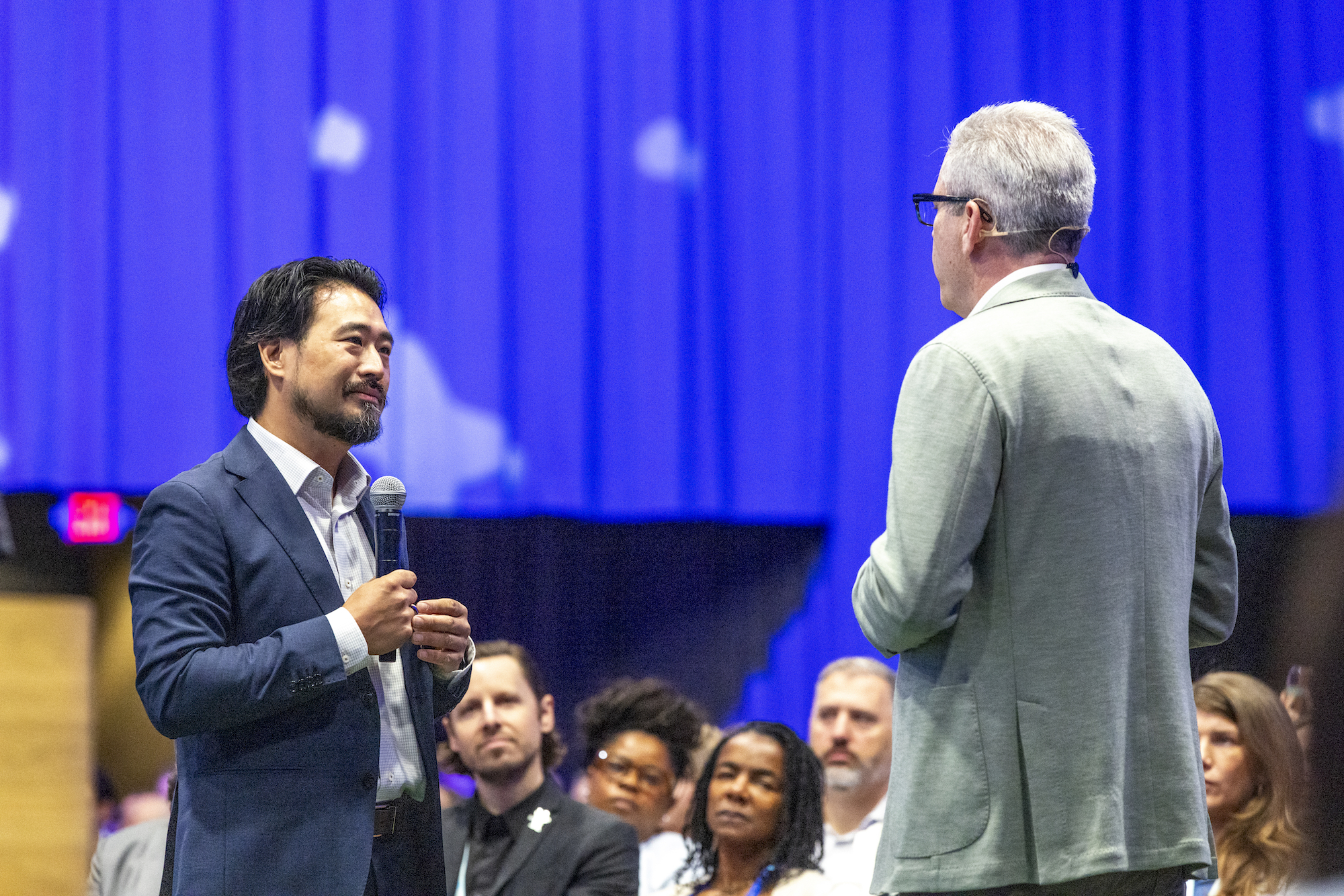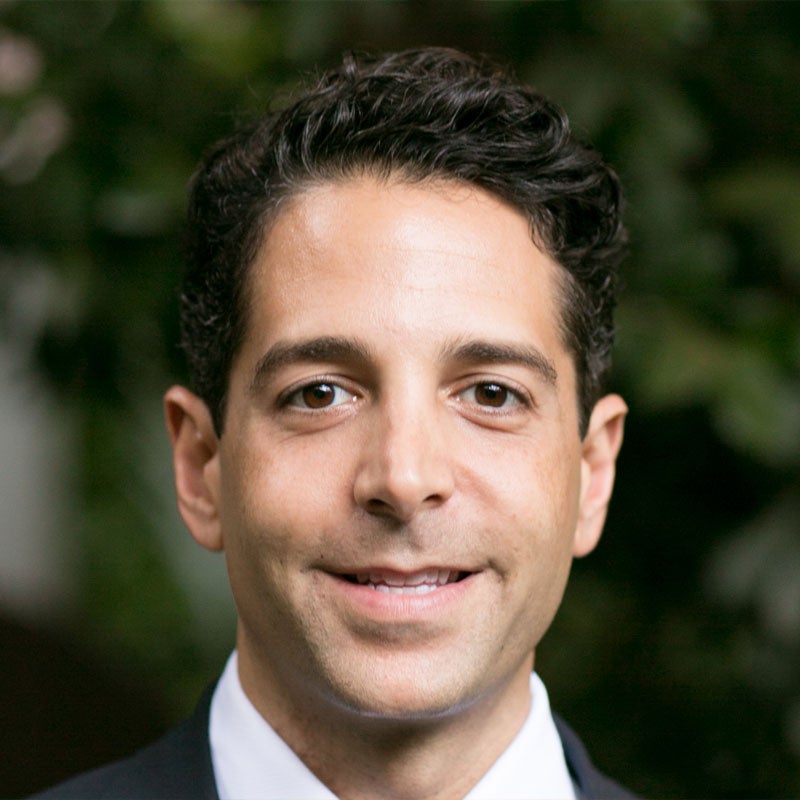Healthcare is not known for marketing innovation. And Andrew Chang, Chief Marketing Officer at The University of Chicago Medicine, is well aware of the perception that healthcare marketing is all about internal brochures and billboards.
But marketing innovation is what healthcare needs, according to Chang, and he’s working to enhance UChicago Medicine by infusing artificial intelligence, including generative and agentic AI, into the organization.
“We’re really bullish on agentic AI and how it’s going to actually enhance everything,” Chang said.
Chang shared some of UChicago Medicine’s recent marketing team wins and future deployments at the Salesforce Connections conference in June, including:
- Scheduling an appointment via text message
- Sending reminder messages to patients who need to schedule a screening or who missed their appointment
- Writing doctor biographies for its website
- Piloting AI physician note-taking
Chang’s Inspiration for Agentic AI Overhaul
Chang experienced an “aha” moment of needing this technology when he was trying to schedule his own medical screening. He called his healthcare provider and left a message. A week later he had a missed call and voicemail from the agent hoping to schedule the appointment. And so on, for months.
The appointment couldn’t be scheduled online or via email and required human interaction. Beyond the frustration of the experience, there was another issue: Patients need to have prompt screenings in order to detect any abnormalities as soon as possible. Plus, healthcare systems gain revenue from these appointments.
UChicago Health is working toward having patients use its website or SMS to interact with a chatbot to schedule or change an appointment. Chang’s goal is to improve customer interactions. “How do we make that experience so seamless that the next time something else happens that’s a little bit more serious that they come to us automatically because that experience is so easy?” he said.
Today, UChicago sends proactive messages reminding patients to book their screening for patients who need one but haven’t booked it yet, or had a screening scheduled and missed the appointment.
“The response rates are unreal,” he said. “It is crazy actually because we’re reminding people about their health and they’re like, ‘Yep, I got to get that done.’”
Next up is allowing shoppers to respond and schedule the appointment in real time.
Data Cloud Gets the Marketing Team a Seat at the Table
For these initiatives, UChicago Medicine is using Salesforce’s Data Cloud, which unifies all of its customer data within the Salesforce ecosystem and acts as a central hub. From there, it can implement Salesforce’s latest innovation, “Agentforce,” which are agentic AI bots that can autonomous perform tasks, like book appointments.
Chang decided to start with Data Cloud, opposed to the vendor’s marketing suite, because Data Cloud touches every aspect of UChicago Medicine and forces all of its departments to get on the same page. The organization set up executive sponsors in each department, such as patient experience, operations, finance, compliance, IT and more, to be on a steering committee for this imitative.
“It truly becomes an entire enterprise-wide tool and it forces marketing to be at the seat. It forces us into those conversations,” Chang said. “It forces us to actually work together to build this end-to-end experience that’s going to touch everything.”
Now, the marketing team is at the forefront of this technology within UChicago, and Chang is a part of more technical conversations with vendors about AI.
“It really helps change the perception of what marketing is in healthcare with our antiquated ways and really accelerating the way that marketing should be looked at, which frankly is a very nice change,” he said.

UChicago Infuses AI Into its Processes
One initiative that is live today is having AI complete biographies for physicians on its website. Prior to using AI, this task was among the least favorite for the marketing team, Chang said. Previously, the marketing team sent a form to the doctor to complete, and then they would have to wait and remind the doctor for a response. Once they received a response, the team member wrote the bio, sent it back to doctor and then waited for edits. It typically took months of back-and-forth and lots of waiting.
This months-long process is now minutes with the help of generative AI. Today, the doctor fills out the questionnaire with an AI agent, which writes the bio immediately for the physician to read, edit and approve.
“All that time that is wasted just waiting: the patient has a better experience, my team has a better experience, the doctor has a better experience,” Chang said. “That’s a huge job satisfier.”
UChicago Pilots AI Doctor Note-taking to Cut Down on ‘Pajama Time’
Another in-the-works AI initiative aims to reduce the amount of time doctors work after their day is done, which is referred to as “pajama time.” Often doctors don’t have time to write their clinical notes during the workday and need to log in to the electronic health record in the evenings to complete this task.
Currently, UChicago is piloting an AI tool that writes notes in real-time while the doctor is visiting the patient and creates a summary in the record. The patient gives consent that this is happening. The tool allows the doctor to look at the patient, instead of at the computer, which creates a better patient experience and has significantly cut down on the after-hours time doctors log, Chang said.








